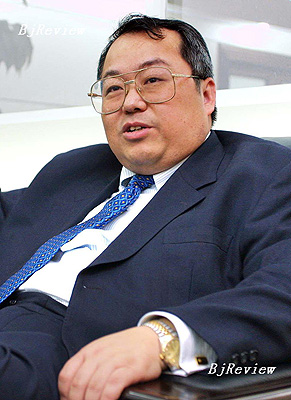|

Once the owner of China's largest refrigerator maker, Gu Chujun was proud of his ability to manipulate the stock market, but now he has to pay for it.
On January 30, the former Chairman of Guangdong Kelon Electrical Holdings Co. was sentenced to 12 years in jail by the Foshan Intermediate People's Court in south China's Guangdong Province. The 49-year-old was convicted of misreporting registered capital, withholding information and embezzling 353 million yuan ($49 million) from companies under his control.
Since judicial proceedings against Gu had lasted for more than two years until the court announced its ruling, Gu is to serve only the remaining 10 years' jail time. The court also imposed a fine of 6.8 million yuan ($944,000).
Seven other people who had assisted Gu in committing his criminal acts also received prison terms ranging from one to four years.
Gu started up his own business in the late 1980s with a proprietary refrigerant technology. In 1995, he invested $50 million to build then Asia's largest CFC-free refrigerant production base in north China's Tianjin. Around 2000, Gu became active in China's capital market and acquired Kelon, a state-owned appliance giant with assets then valued at 6.6 billion yuan ($814.8 million) and yearly revenues of 4.38 billion yuan ($540.7 million), in October 2001. In the following years, he purchased three other listed companies, founding a business empire encompassing refrigerator manufacturing and auto making.
However, in 2004, Larry H. P. Lang, professor of economics at the Chinese University of Hong Kong, accused Gu of overstating profits and engaging in dubious deals to purchase state assets at a discounted price. Lang's claim sparked hot debate in the academic community, and the state securities regulator began to investigate relevant equity transactions.
Gu was detained in July 2005 on charges of embezzlement and fraud. Two months later, the heavily indebted Kelon was acquired by rival Qingdao Hisense Air-Conditioning Co.
The China Securities Regulatory Commission announced in July 2006 to ban Gu from investing in the stock market and holding any position in a listed company for life.
"The settlement of Gu Chujun's case marks an end to a once prevalent development mode of "corporate China" that mainly takes advantage of loopholes in laws and state policies."
Li Yang, analyst at China Merchants Securities Co.
"I'm neither a capital manipulator nor a financial predator."
Gu Chujun, defending his controversial investment approach in a 2003 interview with China's national TV broadcaster CCTV
"The construction of the new center and the launches of a new range of carrier rockets will be non-toxic and won't damage the environment."
Yang Liwei, China's first astronaut in space, dismissing worries about the environmental effects of a new space launch center to be built in the island province of Hainan
"I need to make money. If I don't I cannot survive. So how can I have political motives?"
Lou Jiwei, head of China's $200-billion sovereign wealth fund, quoted by a New York Times report on February 1 as saying that there could be no political motives in China's investing practices
"When you combine the strengths of our two companies, the result will be an incredibly competitive enterprise."
Microsoft Chief Executive Steve Ballmer, speaking to analysts and reporters after the world's biggest software company unveiled a $44.6-billion bid for leading Internet portal Yahoo, a move that is believed to take on the Google juggernaut
"We found severe failings and flaws in the lack of strategic thinking and planning, in both the political and the military echelons."
Report by an Israeli Government-appointed commission, which concludes that Israel's 2006 conflict with the Hezbollah militia in Lebanon was a missed opportunity and a grave failure for the Jewish state
"This administration has so twisted America's role, law and values that our own State Department, our military officers and, apparently, America's top law enforcement officer, are now instructed by the White House not to say that waterboarding is torture and illegal."
U.S. Senate Judiciary Committee Chairman Patrick Leahy, a Vermont Democrat, talking at the opening of a January 30 hearing on the legality of waterboarding
"The Islamic world is not an easy prey and will not remain a target."
Egyptian President Hosni Mubarak, in a written speech to the opening of the Fifth parliamentary union session of the Organization of Islamic Conference in Cairo on January 30 | 